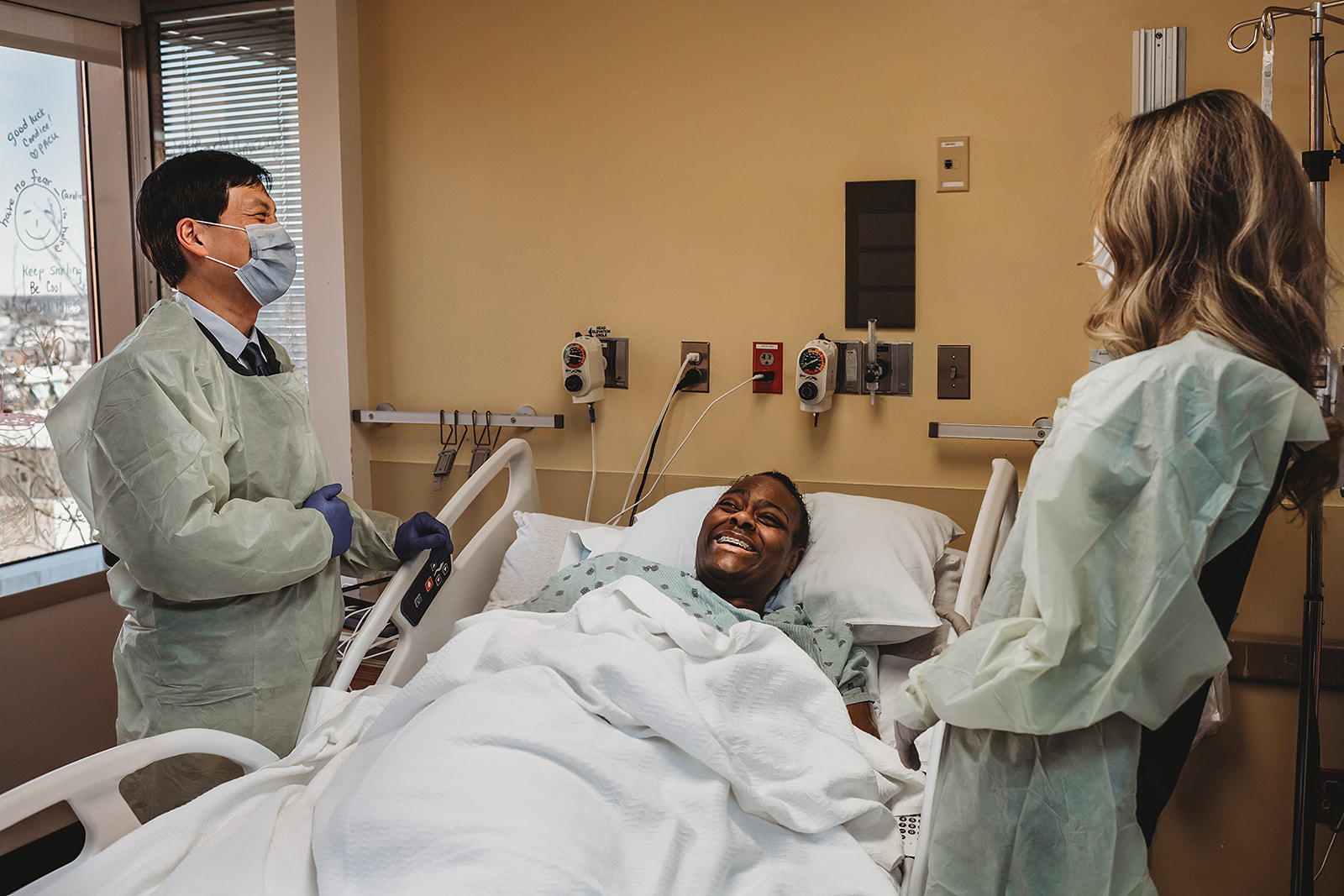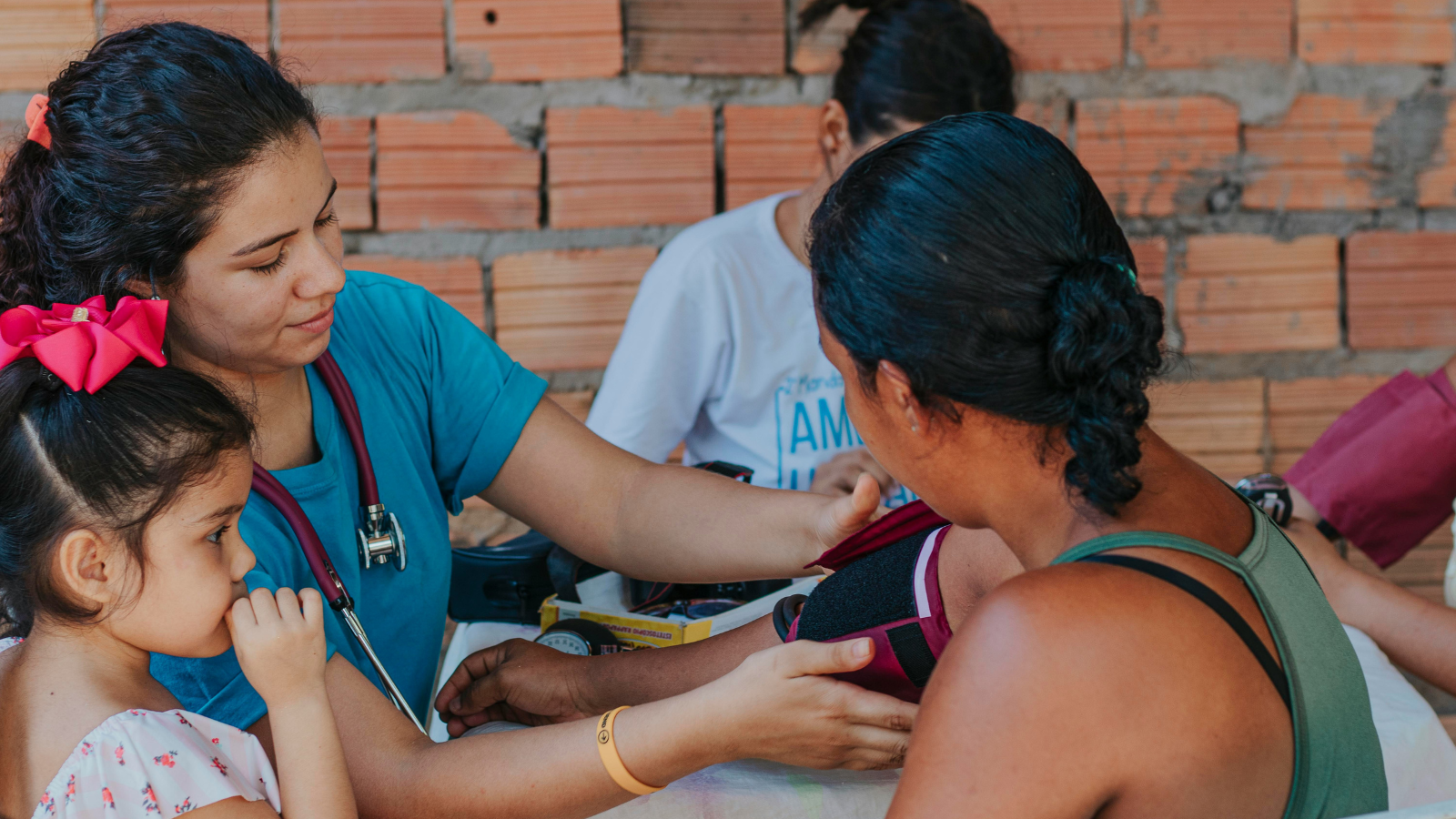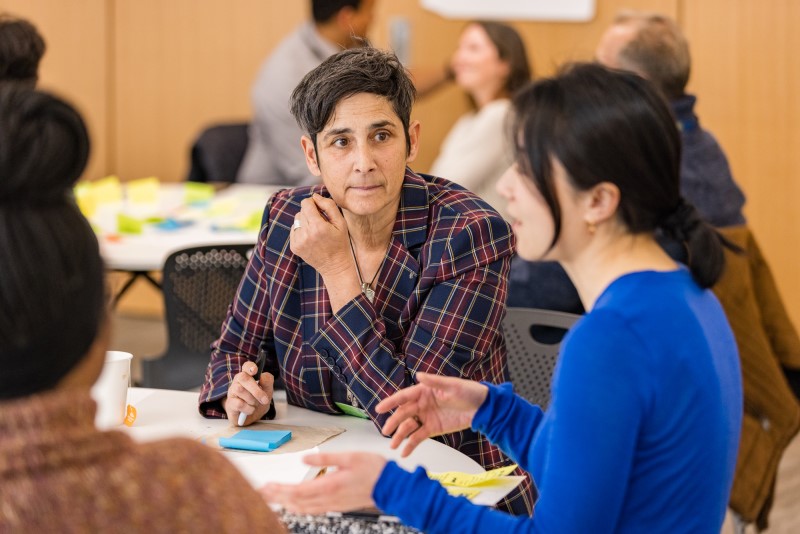Header photo credit: Brittany Dunbar
“At its heart, our work is about really, truly seeing people.”
Rebecca Wright, PhD, BSC (Hons), RN
The Palliative Care Program at Johns Hopkins Bayview Medical Center takes an innovative, person-centered approach that combines palliative care with social justice to prevent and relieve suffering. The approach earned them the Circle of Life Award from the American Hospital Association, which is the highest honor a palliative care program can win in the U.S.
One of the keys to their success was the Palliative Interprofessional Collaborative for Action Research (PICAR), which is made up of an interprofessional team of clinicians and researchers from Bayview and Johns Hopkins Schools of Nursing, Public Health, and Medicine.

It includes three assistant professors from the School of Nursing: Rebecca Wright, PhD, BSC (Hons), RN, Janiece Taylor, PhD, RN, FAAN, and Natalie Regier, PhD, along with Ashley Booth, the program’s research and nurse coordinator who graduated from the MSN (Entry Into Nursing) program in 2020. Team members David S. Wu, MD, Director of Palliative Care at Bayview and Associate Professor at the School of Medicine, and Danetta Sloan, PhD, Associate Professor at the School of Public Health, founded PICAR with Dr. Wright in 2018.
Action research
PICAR contributes to the team by getting research into practice, fast. “Traditionally there is a 15-to-17-year delay,” says Dr. Wright. “But ‘action research’ is in our name, we’re able to conduct research, in real time, that responds to clinical challenges the team faces.”
“‘Action research’ is in our name, we’re able to conduct research, in real time, that responds to clinical challenges the team faces.”
Rebecca Wright, PhD, BSC (Hons), RN
Dr. Wu’s team, for example, observed a pattern of tension when health care teams consulted with many of their Black patients and their families. PICAR responded with a study, “A nurse-led approach to improving palliative care in the ICU for Black populations,” with Dr. Wright as principal investigator. They looked for ways to achieve equity and improve care for their patient population. “How do we tailor care to our patients’ preferences?” asked Dr. Wright.
What’s more, PICAR takes a “codesign” approach to research. That means they partner with individuals, families, and Baltimore and various patient communities to incorporate their views into research design. Ultimately, they improve palliative and end-of-life care in ways that are more relevant, effective, and satisfying for patients and their families.
“We see codesign research partnerships as a thoughtful way to respond to the challenges in our health care systems,” says Dr. Wright.
“It really levels the playing field,” agrees Dr. Janiece Taylor. “We are focused on moving palliative care towards equity.”
A lifeline or life sentence
A key finding of Dr. Wright’s study was that, for Black patients, the most important question was not deciding if they do not want life sustaining treatment (a ‘do-not-resuscitate’), or deciding to die in the hospital or at home. The most important question was “Do I trust you?”
For other populations mistrust of a provider isn’t a death sentence, but it can be for Black patients. Many participants in Dr. Wright’s study had nearly died under previous treatment plans because the provider did not listen to their complaint. “Trust can be made or broken in seconds,” she says. “The emphasis is on the provider to show their trustworthiness. Providers are a lifeline or a life sentence.”
If there’s trust, a patient will follow their provider anywhere.
Support for patients, families, communities… and caregivers
What sets the Bayview program apart is how, in addition to PICAR, it integrates several other ground-breaking structures into the program in order to deliver optimal palliative care.
Clinicians in the program use the innovative 3-Act-Model for care conversations. Developed by Dr. Wu and his team, it is a narrative approach to the goals-of-care conversation, consisting of the patient’s story, medical opinion, and shared decision-making between the patient, family, and care team.
Then, the Palliative Creative Operations Team (PCOT), which is made up of the entire clinical and research teams, gather regularly to brainstorm, pursue creative ideas, and freely collaborate on projects. Finally, the clinical team developed and implemented Thrive By Design, which addresses staff wellness at the system, team and personal levels, and helps prevent burnout.
Helpful, powerful, and kind
“All too often, our health care system prioritizes outcomes that take us away from compassionate care. However, the models in our Palliative Care Program are effective for the person and maintain compassion through partnerships to develop research strategies and deliver care. We’re building something helpful, powerful, and kind,” says Dr. Wright.
Read more:
- On The Pulse: Helpful, Powerful, Kind Palliative Care (podcast)
- Palliative Care at Johns Hopkins Bayview Medical Center
- Interprofessional Team from Johns Hopkins Nursing, Public Health, Medicine, and Bayview Receives Top Palliative Care Award from the American Hospital Association
- Three Programs Recognized as 2023 Circle of Life Award Honorees
- 2023 AHA Circle of Life Awards
- How Johns Hopkins Bayview Medical Center Built an Award-Winning Palliative Program


 Forging Policy: How Can Doulas Improve Black Maternal Health?
Forging Policy: How Can Doulas Improve Black Maternal Health? My First Teachers in Nursing School Weren’t Nurses
My First Teachers in Nursing School Weren’t Nurses JHSON Highlights
JHSON Highlights What Works: Community-Led Research Promotes Evidence-Based Strategies to Improve Indigenous Health by Championing Indigenous Nursing Practice
What Works: Community-Led Research Promotes Evidence-Based Strategies to Improve Indigenous Health by Championing Indigenous Nursing Practice For Neighborhood Nursing, a Known Commodity
For Neighborhood Nursing, a Known Commodity






